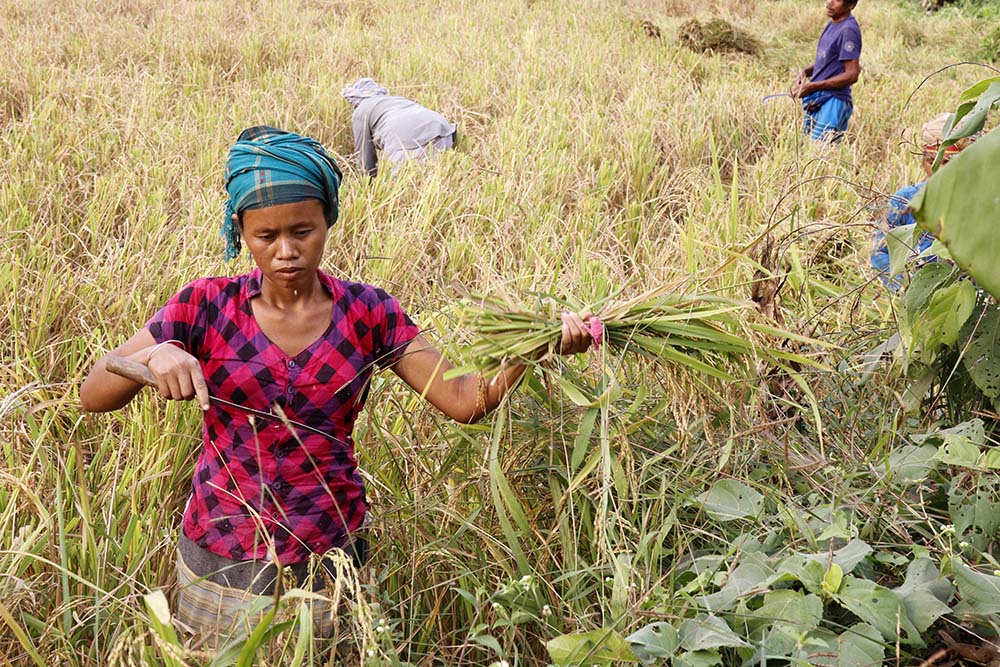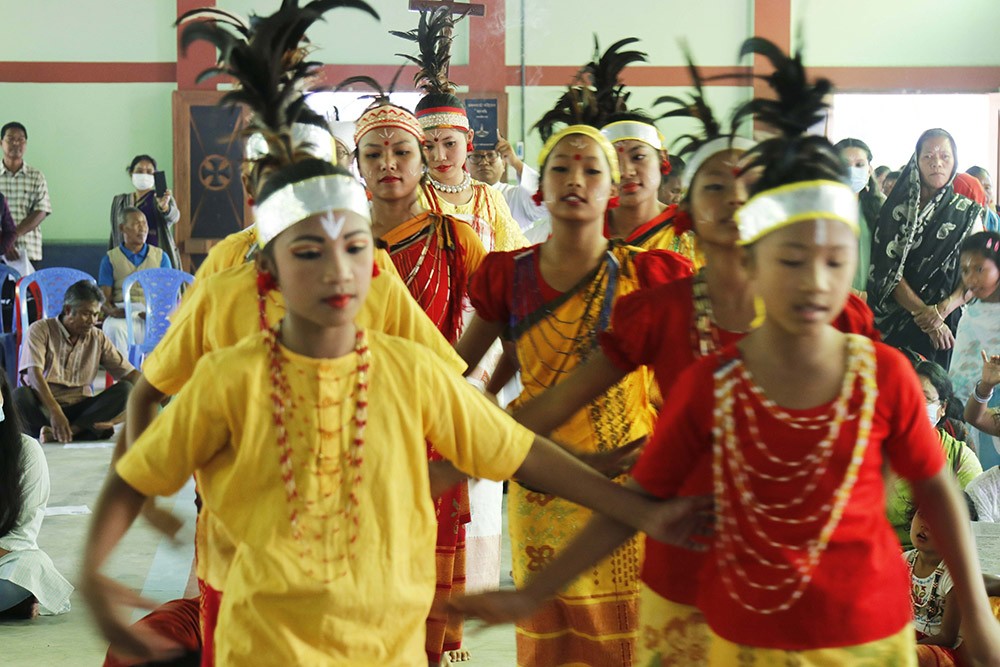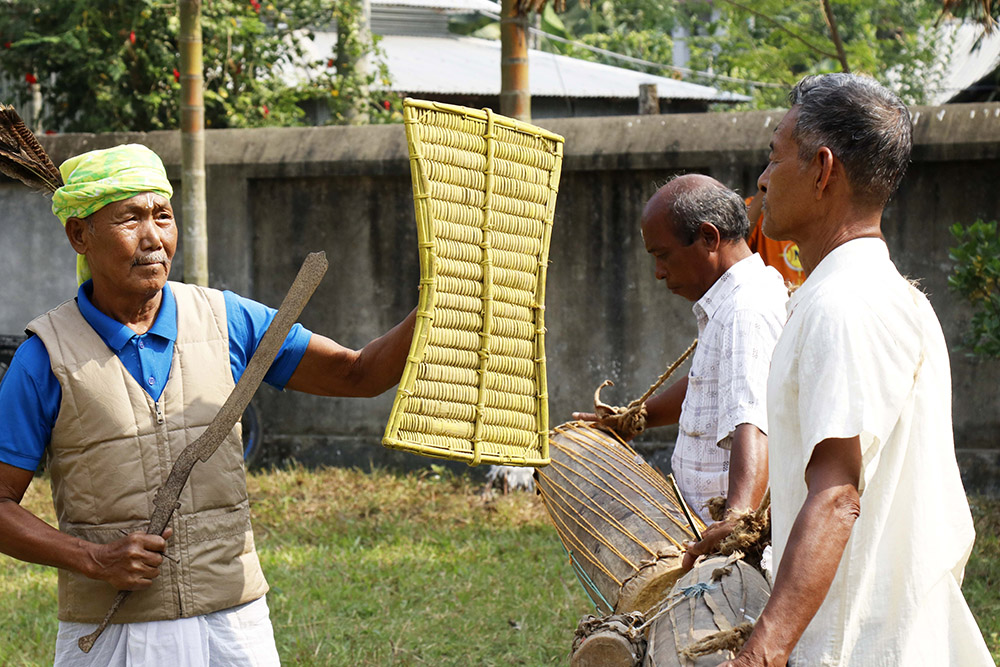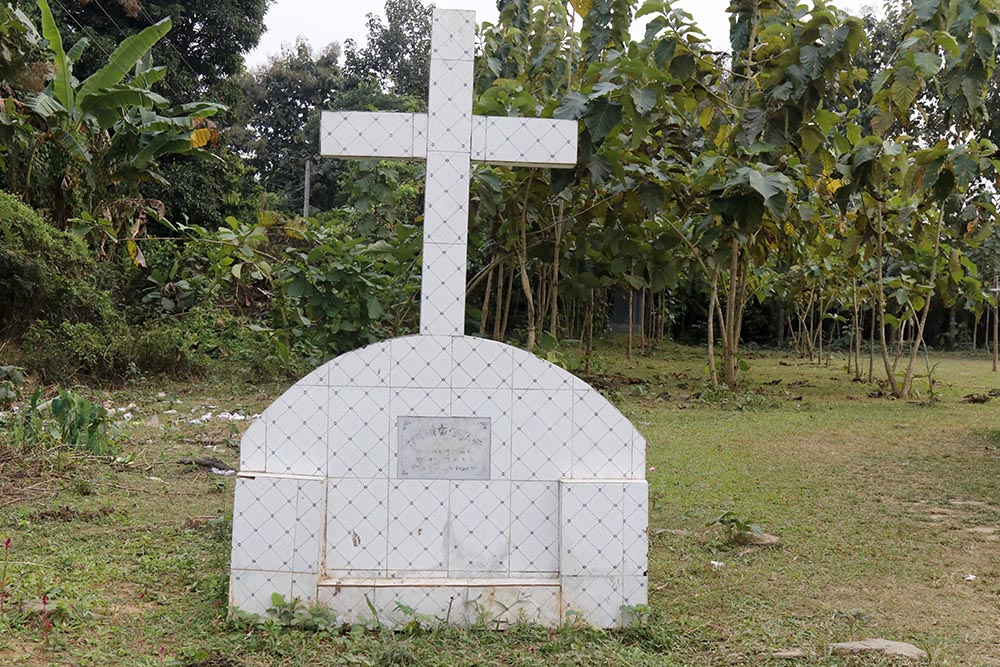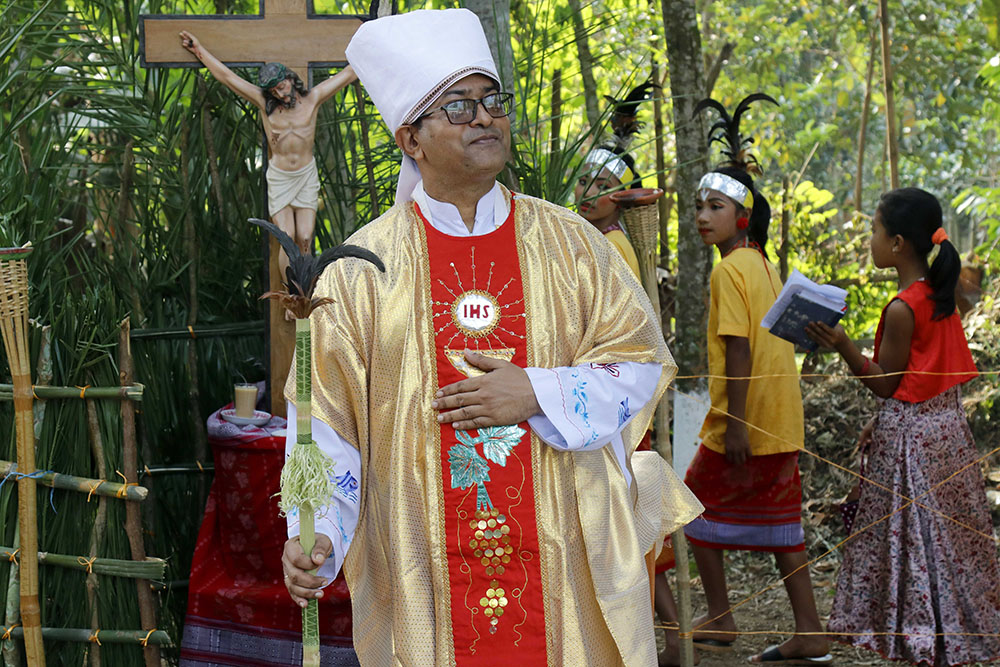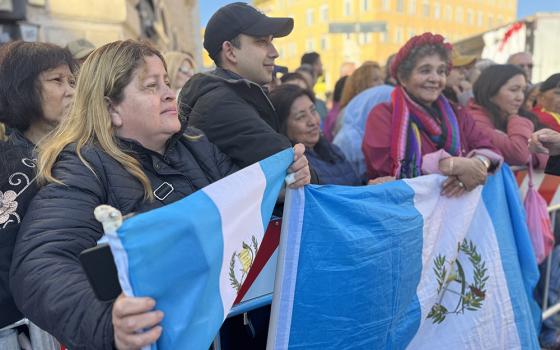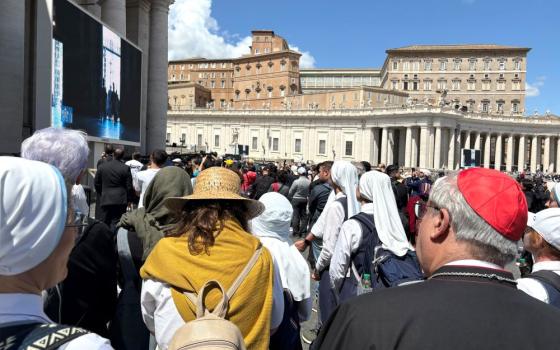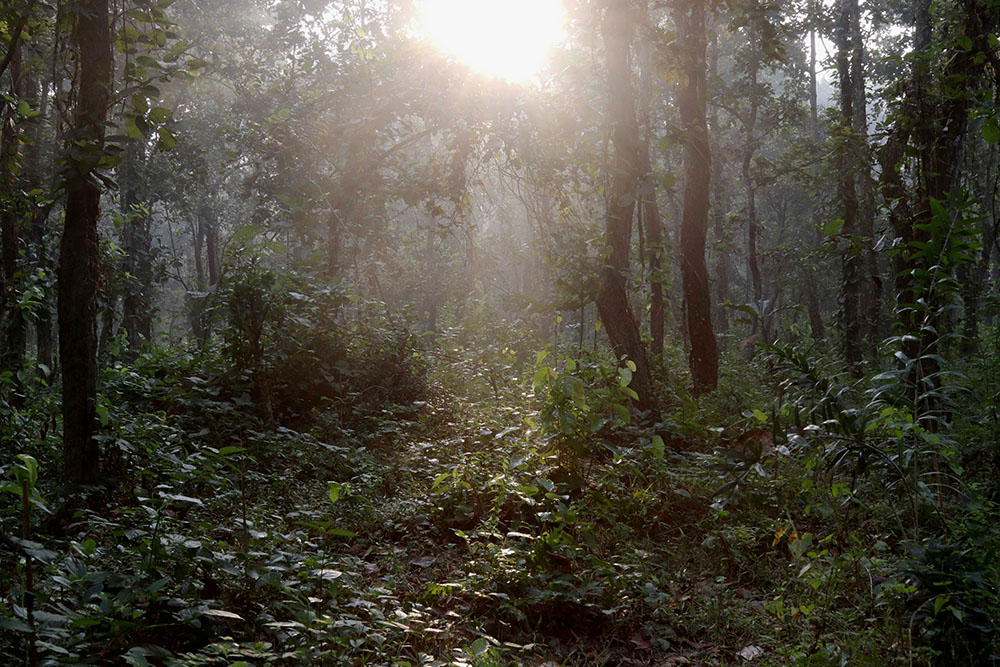
Indigenous Garo people have been living in or near this forest in Madhupur, Bangladesh, for more than a hundred years. The forest is now threatened by government "eco" projects. (Stephan Uttom Rozario)
Utpal Nokrek, a Garo Indigenous Catholic, was only 18 years old on Jan. 3, 2004, when thousands of Garo people of all ages marched in the Madhupur area of Tangail in central Bangladesh to protect their settlements and oppose the government's eco-park project. The Garo people were protesting the construction of the park because it would destroy the natural forest in which they have been living for more than a century.
"As we marched forward in a peaceful procession, we heard loud noises, but I had no idea of the sound of gunfire. Suddenly I saw the police shooting from the front, I was shot in my back and I fell on the ground," recalled Nokrek, now 38 years old.
People fled in fear of their lives, he said. Garo tribal leader Piren Snal died in the peaceful march to protect his homestead. Nokrek was paralyzed for life by the police opening fire. Several others were injured as well.
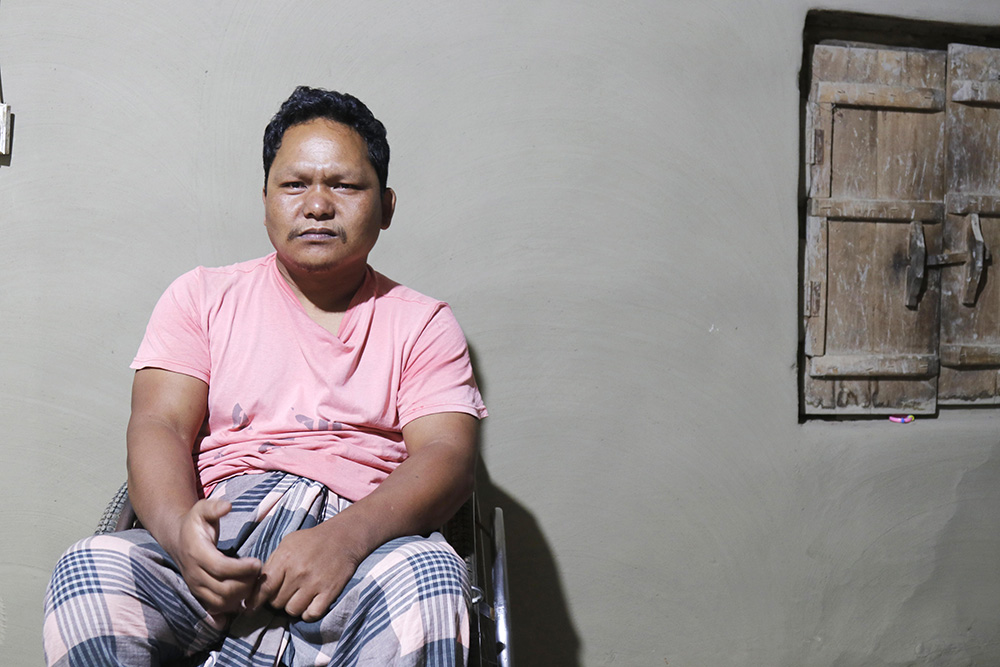
Utpal Nokrek, a Garo Indigenous Catholic, was paralyzed by the police opening fire during a peaceful protest in 2004 in the Madhupur area of Tangail in central Bangladesh. The Garo people were marching to protest the construction of an artificial "eco-park" on natural forest land where they live in Bangladesh. (Stephan Uttom Rozario)
"I saw Piren Snal lying beside me. Later the police threw us like sacks into the police van and took us to the forest office. It was there that Piren Snal died and I was taken to the hospital a day later," Nokrek told EartheBeat with tearful eyes.
Nokrek was treated in hospitals funded by nongovernmental organizations, including Caritas Bangladesh, but was paralyzed from the waist down due to spinal cord injury. Now he moves around with a wheelchair.
Additionally, he was charged with "obstructing Forest Department activities" and is required to report frequently to the police and court.
"All we wanted was to save our ancestral land and natural forest," Nokrek told EarthBeat.
After Snal's death and Nokrek's paralysis, the project was temporarily suspended, but government projects in the area did not stop.
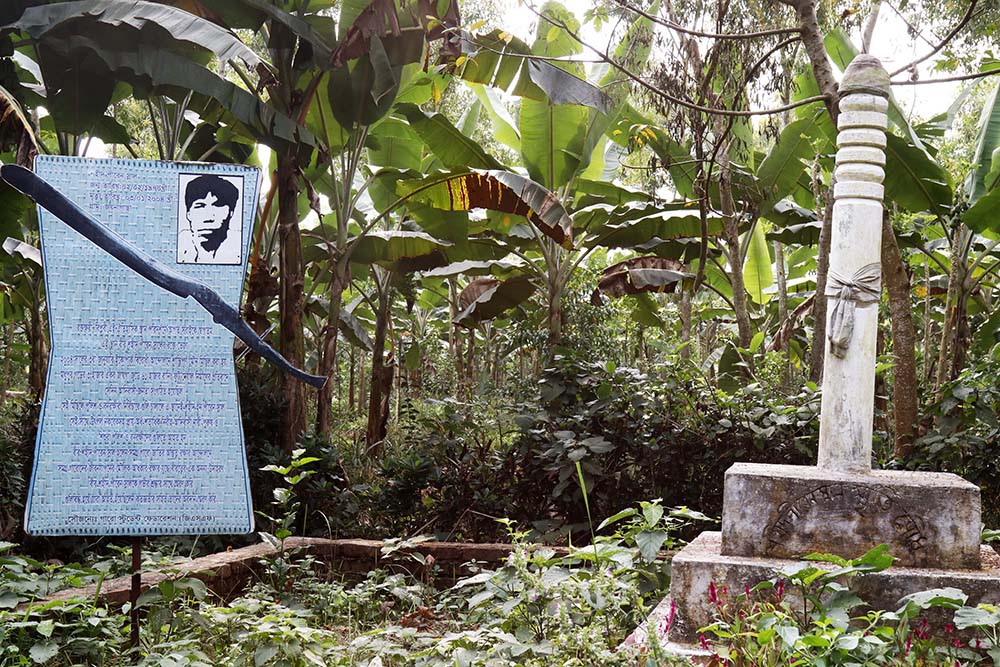
The Garo people have erected a monument to tribal leader Piren Snal, who was killed during a peaceful protest for land rights and forest conservation on Jan. 3, 2004, in the Madhupur area of Tangail in central Bangladesh. He is considered as a martyr in his village, and villagers pay homage every year on his death anniversary. (Stephan Uttom Rozario)
In 2000, the Forest Department had moved to launch a World Bank-funded forest conservation and ecotourism project — the Sustainable Forest and Livelihood Project — on 1,214 hectares in Madhupur, defying opposition from tribal people.
As part of the project, the Forest Department has been constructing gardens with boundary walls, guesthouses and an artificial lake intended for activities for domestic and foreign tourists, according to the villagers.
Tribal activists say the project will have serious socioeconomic impacts on 25,000 Indigenous people living in the area.
About 1,300 families who use the land for farming will be directly affected. Other Garo people collect food and wood for fire from the land, which will suffer deforestation if cleared by the government to create the artificial lake. The Garo will not be compensated for this land loss and the related socioeconomic impacts.
In 2003, the Forest Department began construction of a 3-meter-high wall around 1,215 hectares of Madhupur forests where the Garo people live. The Garo people strongly protested against the eco-park wall construction, and as a consequence Piren died and Nokrek was paralyzed.
The revival of the once-suspended project came after the Forest Department declared in 2016 that it would mark 3,700 hectares of land in Madhupur as a forest reserve, triggering protests from local tribals, said Eugene Nokrek (no relation to Utpal), a Garo Catholic and Indigenous rights activist based in Madhupur.
In April 2022, the government started construction of an artificial lake in Madhupur.
"We oppose the government's current plan to create an artificial lake from the eco-park because it will harm the Indigenous people of the area as well as destroy nature. Tribals indeed attain their livelihood from the forests and nature but they also make a living by protecting nature," Eugene told EarthBeat
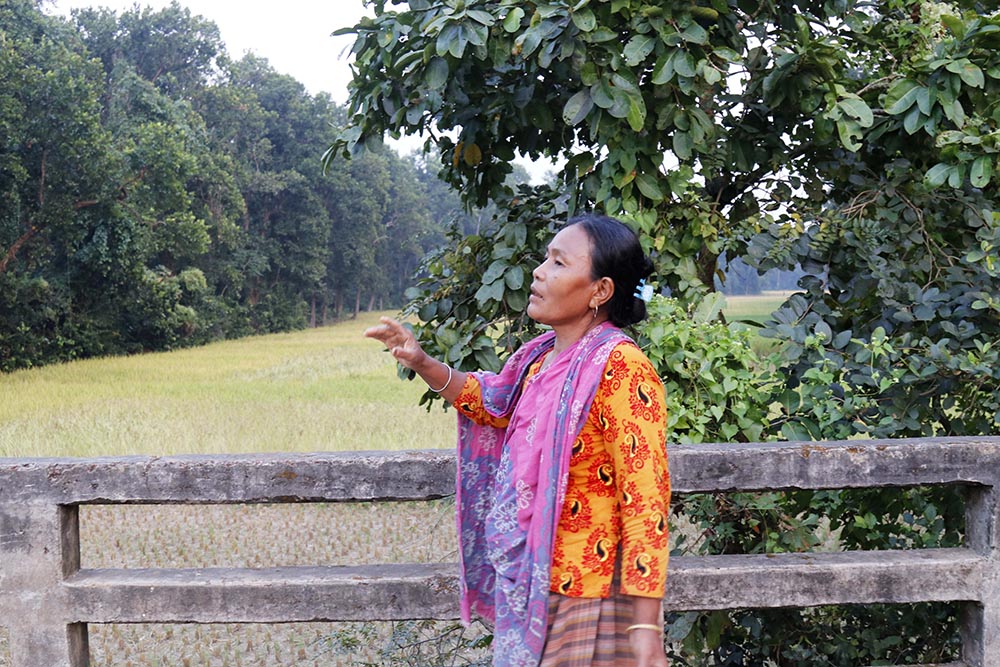
A Garo Indigenous woman from Madhupur, Bangladesh, shows the site selected for an artificial lake. (Stephan Uttom Rozario)
The rights activist said, "We have repeatedly protested to the government, written and verbal. We are holding protest rallies and marches, but the construction of this lake is not stopped. If there is an artificial lake, the Indigenous people will be destroyed along with nature. Indigenous compare the forest to their mother. As a result, no artificial lake will be allowed to be created here while the tribals are alive."
The Garo have a long history of residing in the forests of the Madhupur region. Their livelihood and cultural traditions are well integrated with the forests.
About 90% of Garo are directly or indirectly dependent on agriculture. They grow crops through jhum cultivation (known as shifting cultivation) in the forest, growing crops in open fields. They eat various fruits found in the forest.
Garo celebrations include love for nature. Wangala is their festival during which they dedicate their crops to God.
But in 1984 the government designated most of the Madhupur region as government forest land and publicized this through a gazette notification. The process was completed without consultation with the Garo people.
Historically, Indigenous people have an inherently synergistic relationship with nature. Societies could work with and empower them to learn better ways to manage the forests.
Indigenous activist Eugene said the government needs to initiate policies and programs to improve the rights of the Garo in Bangladesh, and it is also necessary for the government to review and revise national forest policies and laws that adversely affect the rights and lives of the Garo people.
Steps should be taken to preserve the rich Garo culture through research and documentation, Eugene said. He added that civil society can play an important role against discrimination and injustice so that the Garo peoples can gain the respect and rights they deserve as a recognized Indigenous population of the Sal forests.
EarthBeat contacted three senior officials of the government Forest Department who refused to talk about the Garo community's land issues, lawsuits or artificial lakes. A junior official from the Forest Department talked to EarthBeat on condition of anonymity.
Advertisement
"The artificial lake construction project undertaken by the government has no connection with the previous eco-park construction. An artificial lake here will not harm the tribals but will create employment for them," the junior official told EarthBeat.
The junior official said it is true that these lands belong to the government, and it is also true that the Forest Department cases are filed in the name of the Garo. He said they are trying to resolve the case quickly.
However, the Garo community is now living with eviction threats by the government and local influential political parties. They asked the government to provide them with land rights and also not to destroy the natural Sal forest to construct artificial features. They said there is other land in Bangladesh that could be used for the construction of a lake that would not require deforestation and displacement.
Utpal Nokrek and others are still awaiting the Garo community's land rights to be granted.
"We want to ensure living in peace with the forest, we don't like any harm accruing to the forest. Forest and mud is our mother, we are ready to protect our mother instead of our lives," Nokrek said.

